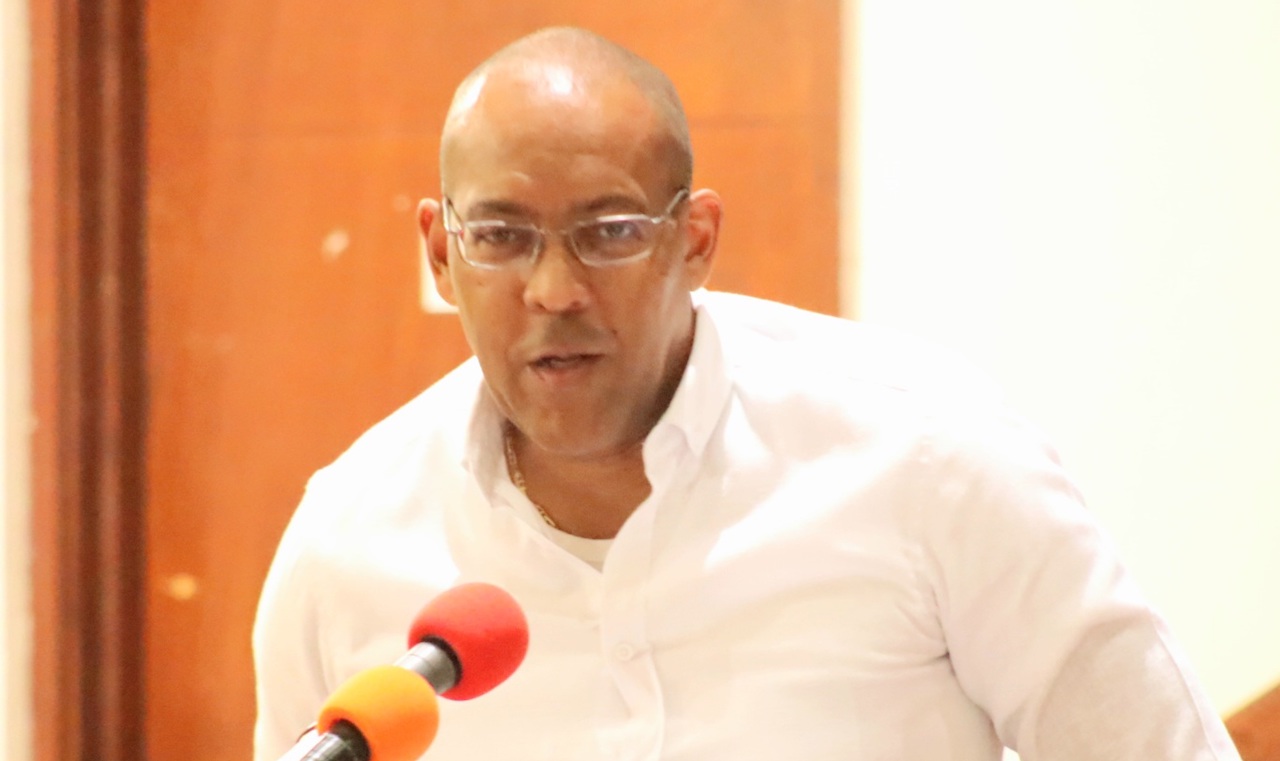Barbados Peacekeeping Troops Deployment to Haiti Delayed Amid Uncertain Multinational Mission

March 15, 2024
Deployment of Barbadian peacekeeping troops to Haiti delayed pending clarity on Kenya-led multinational force mobilization after Haiti's PM stepped down. Barbados stands by to restore order in gang-ridden Haiti.
The deployment of Barbadian peacekeeping troops to crisis-torn Haiti has been put on hold, a senior government minister has revealed.
Minister of Foreign Affairs Kerrie Symmonds disclosed on Thursday that the Mia Mottley administration was awaiting clarity on if, and when a Kenya-led multinational security force – of which Barbados is a part – would be mobilised after all, following Haiti Prime Minister Ariel Henry’s decision to step down.
“Until there is clarity on that wider deployment, Barbadian troops will be standing down,” Symmonds told Barbados TODAY. He said a security contingent is ready to collaborate in restoring law and order in a country taken over by gangs and where no government exists.
Just two weeks ago, Henry and Kenya’s President William Ruto signed a deal to fast-track deploying Kenyan police to curb violence in Haiti. On Tuesday, Kenya abruptly paused the deployment after Henry resigned, casting doubt on the proposed multinational mission.
Since pledging 1 000 officers last July, Kenya faced court challenges halting the mission despite other countries committing personnel. A Kenyan judge ruled the plan unlawful without a Haiti deal.
As Kenya secured an accord with Henry, Haiti’s security worsened with armed groups controlling Port-au-Prince, besieging the airport and freeing prisoners – deepening Kenya’s concerns over the risky mission.
Symmonds said: “Kenya’s foreign minister has indicated that the deal signed for a Kenyan-led multinational security force deployment still stands, but their leadership of the deployment cannot proceed until a government in Haiti has been properly constituted, thereby giving the Kenyan-led multinational force a formal structure to work with in Haiti.”
“Barbados has expressed its intention to participate under the umbrella of the CARICOM sub-regional security service, once approval is given for that service to be deployed. That continues to be our intention. However, the Regional Security Service (RSS) is intended, if it is mobilised, to form part of the wider multinational security force, if and when that larger multinational force is eventually deployed,” he said.
That Multinational Security Force would be led by Kenyan forces.
“Kenya has indicated an intention, in the aftermath of the surge in gang violence at the end of February, and the more recent declaration of intended resignation from Prime Minister Ariel Henry that it will await the installation of a new authority in Haiti before making any final decisions on deployment.
“That new authority will in all likelihood come about pursuant to the formation of a transitional presidential council in Haiti. The formation of such a presidential council has been agreed to by the stakeholder representatives in Haiti including the private sector, the civil society, and the interfaith community.”
He disclosed that the agreement also came from international partners, including Brazil, Benin, Canada, France, Mexico, United States, the United Nations and Kenya itself.
The transitional presidential council will comprise seven voting members and two non-voting observer members from within the civil society and the interfaith community. The task of the presidential council will be to urgently select and appoint a prime minister and then to work with that PM to appoint a new Council of Ministers.
“Thereafter,” Symmonds said, “the transitional council will also have to oversee the establishment of a National Security Council, and make arrangements for the peaceful transfer of the governmental authority via free and fair elections.”
It is expected that the naming of a new interim prime minister and a Cabinet together with a national security council will provide the necessary legal authority to guide and anchor any cooperative efforts that will be made in conjunction with a multinational security force.
Turning his attention to the role of the gangs in the restoration process, or any new authority, Symmonds said the people of Haiti would have to determine that.
“It is strongly felt by several members of the Haitian community and by the international partners that they are not reliable or representative stakeholders and are the major contributors to the instability and insecurity,” the foreign affairs minister said.
“It is generally accepted, however, that at an individual level, the future role of individuals who are gangsters has to be determined by the people who are in authority in Haiti. There are some gang members who are known to be part of and associated with mainstream organisations, including some political parties.”
He advised that, as the process ensues, the Haitian authorities and Haitian people will have to determine who they are prepared to work with and what their internal political process throws up.
France, which colonised Haiti until a revolution established the first free black nation in the Americas in 1804, was represented by Paris’s Minister of International Development at Monday’s meeting in Jamaica where CARICOM brokered the deal for a fresh start in Haiti.
emmanueljoseph@barbadostoday.bb


